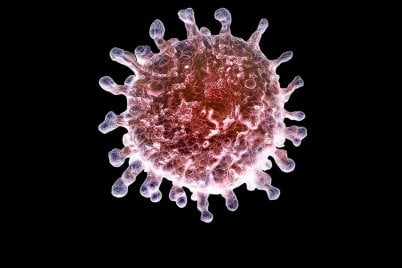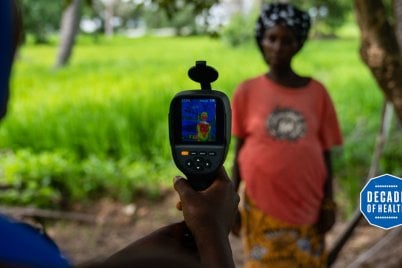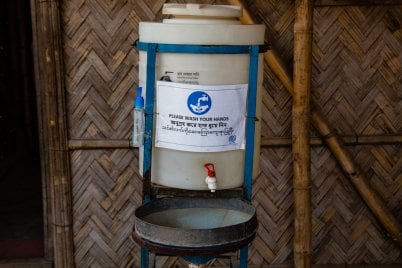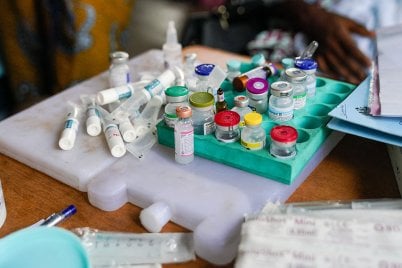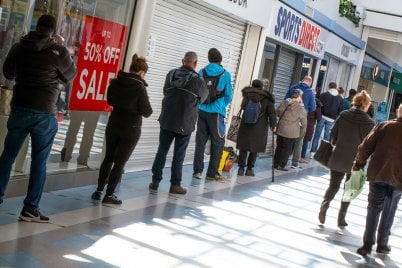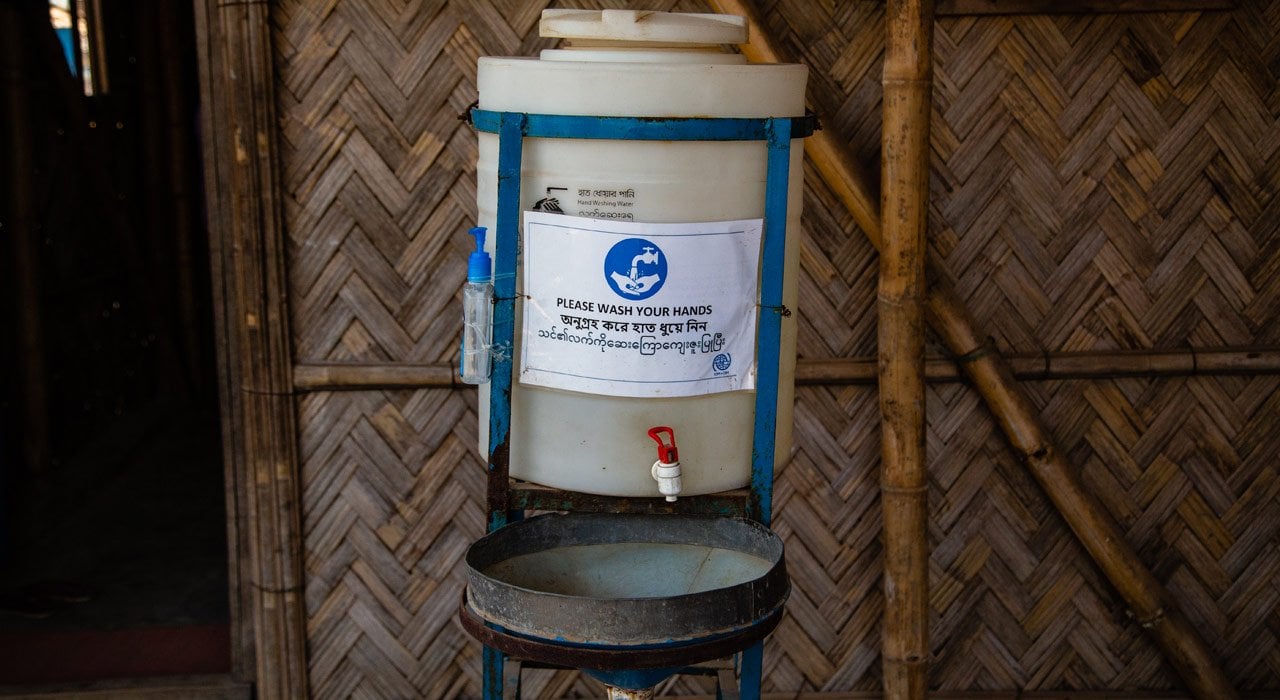
This feature is available for republication under a Creative Commons licence.
Handwashing seems so simple – a basic action we can all take to help prevent the spread of disease, and crucial when an infection like COVID-19 hits. The pandemic has thrust handwashing and environmental hygiene into the limelight, yet studies have shown that many people - regardless of where they live - don’t wash their hands, even after going to the toilet. For those in poverty or with limited facilities, there are additional challenges to keeping hands clean. Although data on global handwashing levels is limited, in most households, people have access to soap and water. More often, the problem is inconvenience or that supplies are not prioritised for handwashing.
Providing the appropriate infrastructure for people to be able to regularly wash their hands with soap is one thing, but understanding what drives people to do things which are good for themselves and others is another.
Getting to grips with human behaviour is a major challenge, and an area of research that LSHTM’s world-leading experts have been investigating for many years.
When the global pandemic took hold, LSHTM researchers quickly rallied to offer their knowledge of handwashing and environmental hygiene as a tool to fight COVID-19. They are now supporting governments and organisations globally on behaviour change campaigns; sharing practical advice, resources, and guides; and bringing scientific rigour to the complex problem of ending a pandemic.
Why do handwashing and hygiene matter?
When it comes to infectious disease, our hands act as a vector for bacteria and viruses. Every day we touch our faces and surfaces, put our hands in our mouths or on our lips, and touch surfaces that other people’s hands come into contact with, from door handles to restaurant menus.
Soap has existed for centuries, as has the role of hygiene in disease prevention. From the western medical perspective, pioneers such as Alexander Gordon and Ignaz Semmelweis documented the importance of hand hygiene in safe childbirth in the 18th and 19th centuries, while Florence Nightingale was advocating cleanliness of the healthcare environment in her 1859 Notes on Nursing. Handwashing has since become part and parcel of public health policies for infection prevention control in hospitals and communities.
From the start of the COVID-19 outbreak, we were told to wash our hands frequently and properly. It was one of the first measures that both scientists and politicians agreed was key for preventing the spread of the virus, emerging in guidance from the World Health Organization. They also started a #SafeHands challenge with Dr Tedros Adhanom Ghebreyesus, Director-General and an LSHTM alumni, sharing a video demonstrating how to wash your hands properly. Other public health campaigns have since sprung up worldwide.
"The science tells us that handwashing is important," says Professor Val Curtis, who has made it her mission to keep hygiene high on the global health agenda. "I’m passionate about it because it is so constantly overlooked."
"We don’t have a pharmaceutical intervention for COVID-19 yet, so the only thing we have is behaviour change, and probably the most important of all the behaviours that need to change is handwashing."
Professor Val Curtis, LSHTM
Professor Wendy Graham, an obstetric epidemiologist whose research includes maintaining clean surfaces in healthcare settings, adds: "Hand hygiene and surface hygiene are like two sides of the same coin. There’s no point having clean hands that touch dirty surfaces. It’s so relevant in the context of COVID-19."
But if it is so simple, why do we still need to be reminded?
Not as simple as it looks
"People think it’s simple," says Prof Curtis. "But actually there’s a mass of science behind what’s driving handwashing. There are massive questions here. You tell people to wash their hands but they don’t do it. Why does this remain a puzzle and challenge in the 21st century?"
"I’ve spent 30 years trying to understand that and still couldn’t give you a perfect recipe to get everybody to wash their hands all the time."
This problem is exacerbated in the current pandemic when working out how to persuade whole populations - including people who already face countless other health challenges - to change their behaviour and wash their hands more frequently.
While Prof Curtis and colleagues have been grappling with this for years, COVID-19 meant that governments and other public health organisations were quickly thrust into the challenge.
Many existing water, sanitation and hygiene (WaSH) and other public health programmes switched to focus on COVID-19, and practitioners needed to implement mass campaigns to boost handwashing and help keep the spread of infection at bay.
"It was always assumed that if you just told people to wash their hands because it would protect their health, then they would do it," Prof Curtis says. "But of course it’s much more complicated than that."
"We’ve spent many years trying to understand what could be driving people to wash their hands with soap, and found a range of things that are important to people."
Factors that motivate people to handwash include nurturing - where primary caregivers and the desire to protect children comes into play; disgust of disease agents; and affiliation (fitting in with other people and within social groups). The latter has been demonstrated in studies including a motorway service station experiment, where signs were placed by the sinks with different slogans and researchers measured impact on frequency of handwashing. The sign that made the most difference read: Is the person standing next to you washing their hands?
"If we look around and see that everybody else has washed their hands it’s extremely hard not to do it but if you look around and see that no one does it, it gives you permission to not wash hands," Prof Curtis explains. It’s just one example of the many influences on our behaviour, showing why we need science to help make sense of it all.
Science and creativity in behaviour change programmes
Drawing on evolutionary psychology to try to understand human behaviour, Prof Curtis and behavioural scientist Dr Robert Aunger developed a framework for public health programming called Behaviour Centred Design (BCD). This pioneering approach harnesses the power of deep-seated motivating factors from our evolutionary past that still drive behaviour.
"Quite early on there was a recognition that to change behaviour you’ve got to think a bit out of the box to get people’s attention," Dr Aunger says.
BCD has been shaping policy and practice around the world, including successful communications campaigns coordinated by LSHTM, such as SuperAmma (SuperMum) in India. This character creatively harnessed influencing factors like good manners, nurture and disgust. And now BCD theory and tools have helped inform the resource documents prepared by the COVID-19 Hygiene Hub and creative messaging such as their new Corona Touch animation.
Dr Aunger is also part of the LSHTM team supporting the £100m COVID-19 hygiene behaviour change collaboration jointly funded by the UK government and Unilever. Partners of the fund will reach up to a billion people worldwide, providing more than 20 million hygiene products in low resource settings and supporting mass media campaigns to get people to wash their hands with soap regularly.
"What science can we bring to the way they want to engage with populations in a lockdown context to really make activities effective?" he says. "We have to be creative, remember that situational factors are always important, and that technology matters."
Handwashing must be possible - and easy
All the researchers agree it would be futile and irresponsible to try to change people’s behaviour if they can’t physically do it, because they don’t have the environment, equipment, or infrastructure they need around them. For example, 25% of healthcare settings do not have basic water services. Efforts to improve WaSH infrastructure and access are thus crucial.
Barriers to handwashing include soap being kept for washing dishes or laundry rather than hands, or the risk of it being stolen from shared facilities or eaten by animals. Combined with having to walk far to collect water and the stress of feeding a family, handwashing can easily become a lesser priority.
Sian White is a member of the LSHTM’s Health in Humanitarian Crises Centre, and completing her PhD on hygiene behaviour change during humanitarian crises, with case studies from the Kurdistan Region of Iraq and the Democratic Republic of Congo.
She says: "Most households globally will have soap in them, but it is a valuable item and prioritised for tasks that seem more important.
"The same applies for water. We also know that in very water scarce environments, it’s not that there’s no water at all, but that it is again prioritised for other seemingly more important tasks. To enable handwashing in these challenging settings we need to create an enabling environment, and make handwashing a rewarding and normative behaviour. To do this we can’t just focus on the barriers that prevent people practising the behaviour, we also have to explore how handwashing fits within broader routines, priorities and the challenges of people’s day to day lives."
A researcher at the African Population and Health Research Center, Sheillah Simiyu who has worked closely with LSHTM’s WaSH experts and observed these difficulties in handwashing in low income areas first-hand.
Working on ‘Safe Start’, a trial aiming to improve hygiene behaviours among infant caregivers in low-income peri urban areas in Kisumu in Kenya, Sheillah noticed an important behaviour.
"Although households generally had soap, it was prioritised for activities such as cleaning, dishes, and bathing, rather than being set aside for handwashing. Proper handwashing was less prioritised, and even when hands were cleaned, soap was rarely used because it was not always kept at the handwashing area."
Sheillah is also currently leading a study on management of shared sanitation in low-income settlements in Kenya and Ghana, and points to further challenges.
"Our preliminary results highlight the difficulty of washing hands with soap after toilet use, especially when the facilities are outside one’s dwelling. In such cases, people have to go back to their households to clean their hands with soap and water, but may not always have a designated handwashing area. This would make a common handwashing area seems ideal, but there are still challenges around security, vandalism, and poor maintenance, especially in low income areas."
Hygiene challenges in refugee camps or conflict settings
"Humans are incredibly resourceful and resilient when crises occur. We can cope with a lot, but in that process we often compromise on some of the things that are most advantageous," says Sian.
"When we are traumatised and worried about the welfare of our loved ones or where our next meal is coming from, then things like handwashing with soap are not top of our agenda, even though most people in those settings will be able to eloquently explain how handwashing is beneficial to health."
After recovering from COVID-19 in late March, Prof Wendy Graham decided to return to clinical work and on a coronavirus ward in an NHS hospital in Scotland. If it hadn’t been for the pandemic, she would have been in South Sudan, working with the International Committee of the Red Cross on a project looking at infection prevention in a conflict zone.
For instance, when having to clean field hospitals, "…those are difficult surfaces to clean. You can’t easily wipe tent walls. You’ve also got acute staff shortages, traumatised patients, and things like curfews which means that cleaners can’t [always] come to work," Prof Graham says.
COVID-19 is adding further pressure to already fragile situations, and although the science around the virus’ longevity on fabrics remains patchy, Prof Graham notes basic hygiene is still just as important. Instead of the planned research in South Sudan, researchers on the project are now working to simplify messaging on handwashing and environmental cleaning in healthcare facilities for conflict or emergency situations.
"With COVID-19, there’s been a deluge of guidelines," she says. "When you move that to a situation with staff shortages and a very stressed physical environment, and then you get a 200-page guideline – forget it, you’re not going to read it."
Instead, the team is working with an illustrator to show how to maintain a clean and safe healthcare environment using pictures and simple words so people can absorb what needs to happen quickly.
Bringing science and frontline experience to the response
When COVID-19 was first declared a global pandemic, Sian White and the Wash’Em team immediately developed a simple guide for rapid, low-cost handwashing promotion and ran webinars for organisations to set up short-term handwashing activities while they did long-term assessments.
"We were blown away with the eagerness with which people downloaded and shared the document," she says.
"It really struck us that people were desperate for practical ideas that they could implement relatively easily. It also became apparent that the pandemic had prompted a range of non-traditional actors to become involved in the delivery of hygiene promotion so we had to ensure that these new actors worked in a complementary way and could benefit from all the prior learning within the sector."
It became clear a larger platform to collate the response effort was needed. Several LSHTM researchers including Sian, Robert Dreibelbis, Oliver Cumming, and Joanna Esteves Mills set up the COVID-19 Hygiene Hub – a global initiative linking a network of researchers, implementing agencies, and national and international organisations, and which Sheillah is also part of. The Hub’s goals are to promote sharing and learning, through a stream of up-to-date, practical peer reviewed resources; a platform for implementers to learn from each other, and share 'real-time' support and latest evidence.
Meanwhile, Prof Graham and colleagues created a complementary platform, Safe Surface Science, to raise awareness of environmental hygiene risks for COVID-19. These platforms combine evidence-based practical help with preparing for the long term both for COVID-19 and future infection control.
In its first three months, the Hygiene Hub resources have been read more than 20,000 times and it has provided tailored support to more than 130 organisations and governments in 54 countries.
The resources produced by the team are informed by rapidly developing global guidelines, the latest evidence on hygiene and behaviour change, and prior experience supporting hygiene programmes in low-resource settings. Crucially, the work of the Hygiene Hub is conducted in close collaboration with governments, non-governmental organisations, WaSH practitioners, private industry, and product designers.
"From the outset we were mindful that we did not want the Hygiene Hub to be a top down initiative," says Sian. "This was a new situation for all of us and so there has been a lot to learn from hygiene promotion staff working on the frontline and from the innovations of communities in low and middle income countries. As with all outbreak responses, the COVID-19 pandemic has highlighted the importance of communication, information sharing and collaboration. For me personally, it’s been exciting to connect remotely with hundreds of actors globally and work with them to overcome challenges.
"So much can be learned from trying to empathise with populations and move away from the idea that they are doing ‘wrong’ behaviours, and instead trying to imagine how we would each respond if we were in the same situations."
Prof Graham has noticed a similar surge in downloads and requests, including for the TEACH CLEAN training package for hospital cleaners. The resources, aimed at empowering health workers with low levels of literacy, were developed by the Soapbox Collaborative, a charity whose legacy lives on through the MARCH Centre at LSHTM.
She agrees that the role of direct observations and listening to local workers is a vital part of the research process. For example, she and colleagues were trying to identify why Staph. aureus bacteria were often found at the ends of beds in a maternity hospital in Bangladesh.
Mops were never an initial suspect, but it turns out the heads were the contaminated culprits. The cleaners were unknowingly spreading the bacteria around the floors, and pregnant women would walk barefoot on them, ultimately transferring the bacteria on their feet to the beds where they gave birth. The discovery set Prof Graham and partners on a journey to raise awareness of the importance of cleaning, then a neglected area of research.
"One of the things I’ve learnt in 35 years of working on this, is that things are often not what you think they are," she says. "Our role as scientists is to keep an open mind. We would never have thought of the mops had we not done some basic observational work. You’ve got to go and see and work with the people on the ground who are dealing with it daily."
Solutions through technology and innovation
LSHTM researchers are also creating innovative products to encourage, or 'nudge', people to behave a certain way, as well as products to enable handwashing in challenging or resource limited settings. These draw on how behaviour change theory and understanding around infrastructure can influence one another to identify what could make a positive difference in a particular context.
For example, the Surprise Soap study led by Julie Watson found children in a displaced persons camp were four times as likely to wash their hands if they were given a soap with a toy inside. Sian is also working with Real Relief, a humanitarian product company, to test acceptability and efficacy of Supertowel, an antimicrobial cloth which allows people to handwash without soap and just a small amount of water.
In another project trialled in Tanzania, Dr Aunger teamed up with product designers from Imperial College to develop a 'singular soap' that overcomes problems of contamination that people face when handwashing and latrine facilities are shared by households and communities.
"Essentially it’s something you can carry around in your pocket," Dr Aunger says. "It’s got just the right amount of soap so you can wash your hands once, but can’t really use it for anything else. I’m excited because people actually used it regularly in the trials. The design came from thinking very, very hard about behaviour and all the constraints on it."
Beyond COVID-19
Handwashing and environmental hygiene have never had so much public attention. But as the researchers dedicated to the field play their part in the pandemic response, a big question is what will happen once memories fade.
New initiatives involving LSHTM offer an opportunity to do just that. Hand Hygiene For All, set up by the WHO and UNICEF, focuses on ensuring that current interest in hygiene turns into long term sustainable change, while the Reckitt Global Hygiene Institute aims to generate practical, informed public health research that leads to enduring behaviour change.
"On one level, these are very basic needs and requirements – maintaining clean hands and environment – but the problem with basics is they very easily fall from view once the immediate crisis has passed," warns Prof Graham. "I am naturally an optimist and I hope this will not happen, but we do need to see the COVID-19 pandemic as an opportunity to make hygiene messages and behaviours stick.
"There’s no magic bullet, public health tells you this – effective responses need multiple components. COVID-19 will not be resolved until it’s tackled everywhere and with multi-faceted strategies, including safe hands and surfaces."
Professor Wendy Graham, LSHTM
Thinking long-term is key. In a recent paper, Prof Curtis and colleagues argue that it is possible and necessary to do strategic thinking about communications when you’re in a hurry and in a pandemic.
"We argue that governments should think strategically about how to do communications and that this is an opportunity for them to strengthen their capacity to do this not just for COVID-19 but for infectious diseases of all sorts," she says.
"I'm very insistent that we don’t stop doing what we were doing before because there are still many millions dying from infectious diseases in Africa and Asia and COVID just adds to that. We need to take the opportunity from the investment going into COVID-19 to build capacity so that it’s available for the next pandemic.
"That’s the same argument whether it’s the UK or anywhere else. Build for sustainability. Don’t just think short term."
COVID-19 Response Fund
There cannot be any complacency as to the need for global action.
With your help, we can plug critical gaps in the understanding of COVID-19. This will support global response efforts and help to save lives around the world.
Support LSHTM's COVID-19 Response Fund

